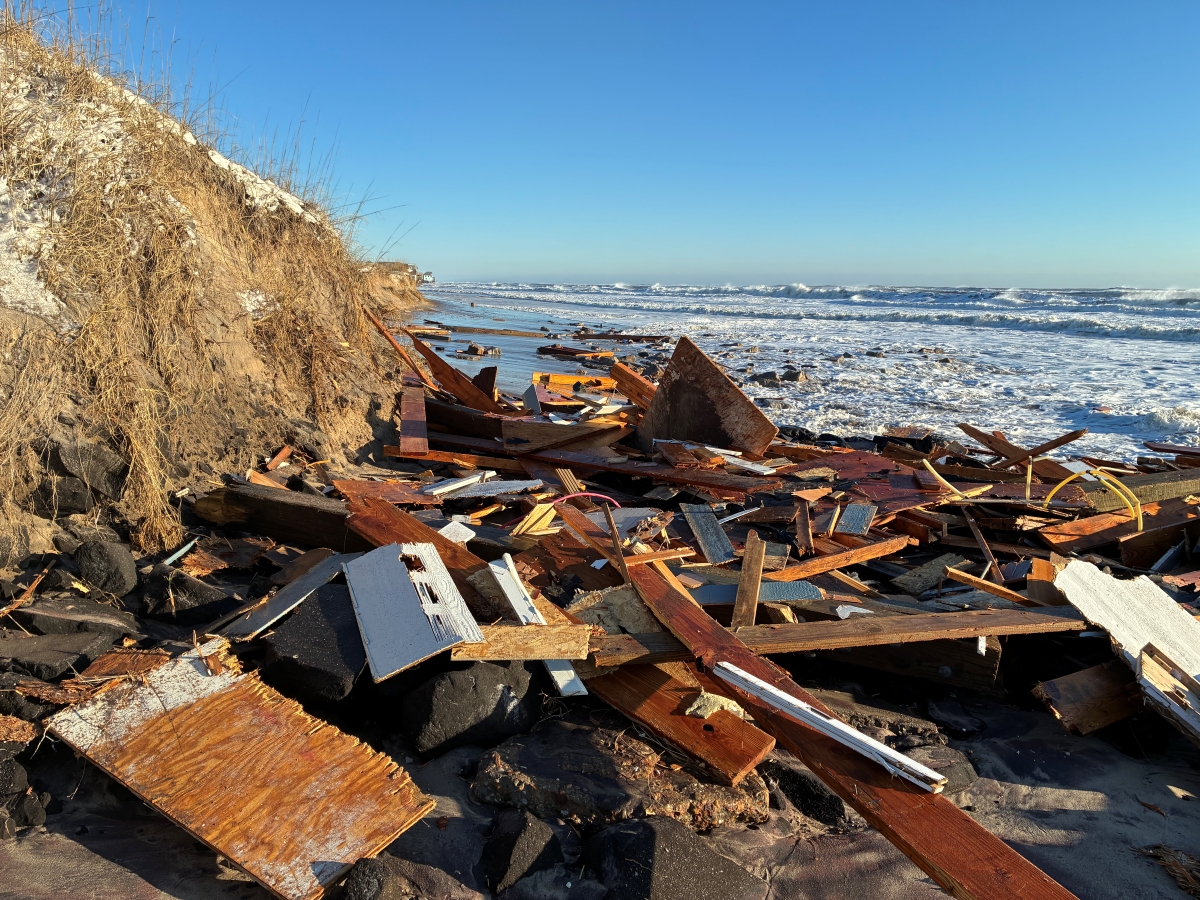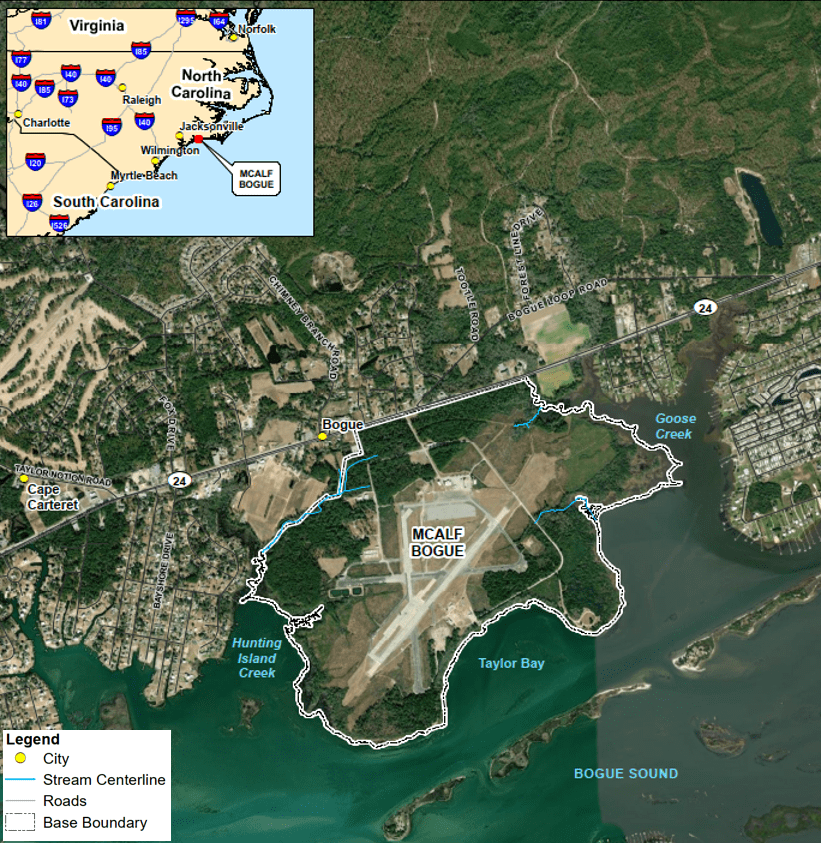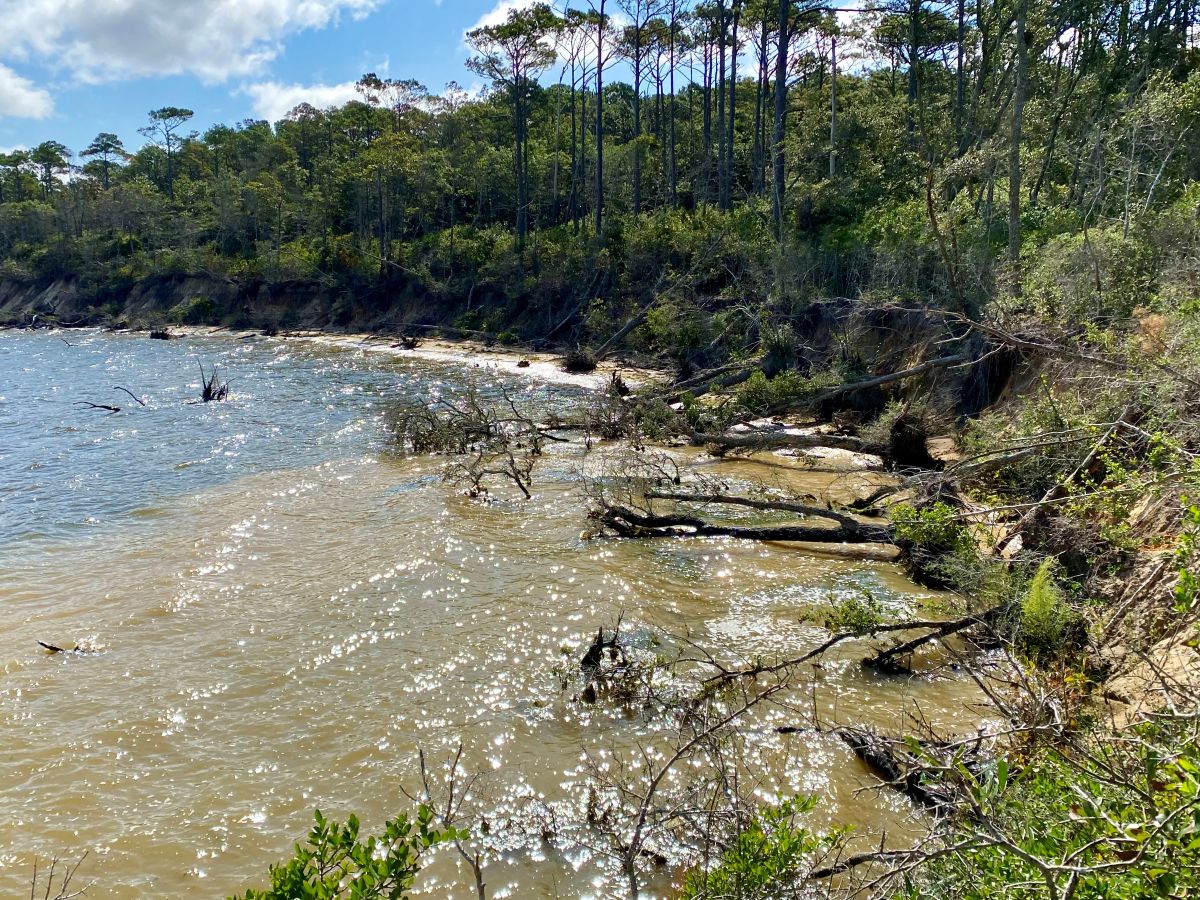Reprinted from the Tideland News
MAYSVILLE — “Save Hofmann Forest” organizer Ron Sutherland stopped short of declaring total victory, but said he was greatly encouraged by N.C. State University’s announcement yesterday that the school would keep control of the vast majority of the 79,000-acre research forest that straddles the Onslow-Jones county border.
Supporter Spotlight
Instead of selling the property after a bruising, nearly two-year public relations and legal battle, the university will now focus on conserving much of the 79,000-acre forest, maintaining a working forest and providing access to university researchers and students, N.C. State said in a release.

“I think overall it sounds like a big victory,” said Sutherland, a scientist with the Wildlands Network. “Generally, the university keeps control of the land, and although most if it would be leased to a timber operation, that’s not the end of the world; it’s not that different from what’s been going on. And this still keeps the door open to future efforts to make it some kind of public land.”
The university’s Endowment Fund and Natural Resources Foundation, which technically own the forest, will negotiate sales of easements and leases to the Navy and Marine Corps for training. They will also investigate selling a multi-decade timber deed on close to 56,000 acres of existing pine plantation, with requirements for certified sustainable forestry practices, and negotiate conservation easements for about 18,000 acres known as the Big Open Pocosin. The university may also sell the current 1,600-acre farm for continued agricultural use and two mitigation banks, totaling about 450 acres, for continued mitigation use.
The one provision in the university’s announced plan that worries Sutherland is the potential sale of about 4,000 acres along U.S. 17 near Jacksonville for development.
“That’s an important caveat,” he said. “It sounds like they’re still looking to make a lot of money by developing that tract. From our organization’s perspective that would not be good because it would break the important natural connection between Hofmann and Camp Lejeune. Hopefully, we have time to do something about it.”
Supporter Spotlight
N.C. State has been trying to sell the forest for about two years, stirring the ire of some environmentalists, conservationists and university students and faculty. The forest, they maintained, is extremely valuable as a haven for wildlife and native plants and is an important bridge to other natural areas, such as the Croatan National Forest, Camp Lejeune and Holly Shelter Gamelands in Pender County. Located in the headwaters of the White Oak, New and Trent rivers, the forest acts as an ecological “sponge” that soaks up pollution-laden stormwater runoff that would otherwise flow into the rivers, opponents of the sale have said.
Most recently, the school wanted to sell 56,000 acres of the forest to Resource Management Service of Alabama, a timber management company, and the remaining 23,000 acres to Hofmann Forest LLC, an Illinois-based agribusiness that planned to develop part of the property. The two would have paid about $131 million for the land. N.C. State announced three months ago, though, that the deal had fallen through because of financial problems with one of the buyers.

Initially, the school had planned to sell the entire forest to an agribusiness that published a perspective that alarmed conservationists because it talked of widespread agricultural use and residential and commercial development.
Retaining ownership of the forest would trade off short-term financial return for control of the property and greater return over many years, N.C. State Chancellor Randy Woodson said in yesterday’s statement. Under the new plan, the endowment could see more than $125 million in return in the next several years and more over the succeeding decades, officials said.
“This plan will generate significant income for the college while maintaining control over future uses of the property,” Mary Watzin, dean of the College of Natural Resources, added. “It supports the strategic needs of the college and ultimately may serve as a model for sustainable solutions to the twin challenges of natural resource conservation and economic development.”
Sutherland, who was one of the plaintiffs in a lawsuit that sought to require the school to conduct an environmental assessment before selling the land to anyone, said there were still some concerns about the new plan and that the devil, as always, will be in the details.
He and others are particularly worried about whether the public will be allowed on the land leased by the timber company and whether N.C. State faculty and students will maintain access for teaching and research.
“All of that aside, it sounds like we changed the course of history a little bit and we’re going down a better path,” Sutherland said.







